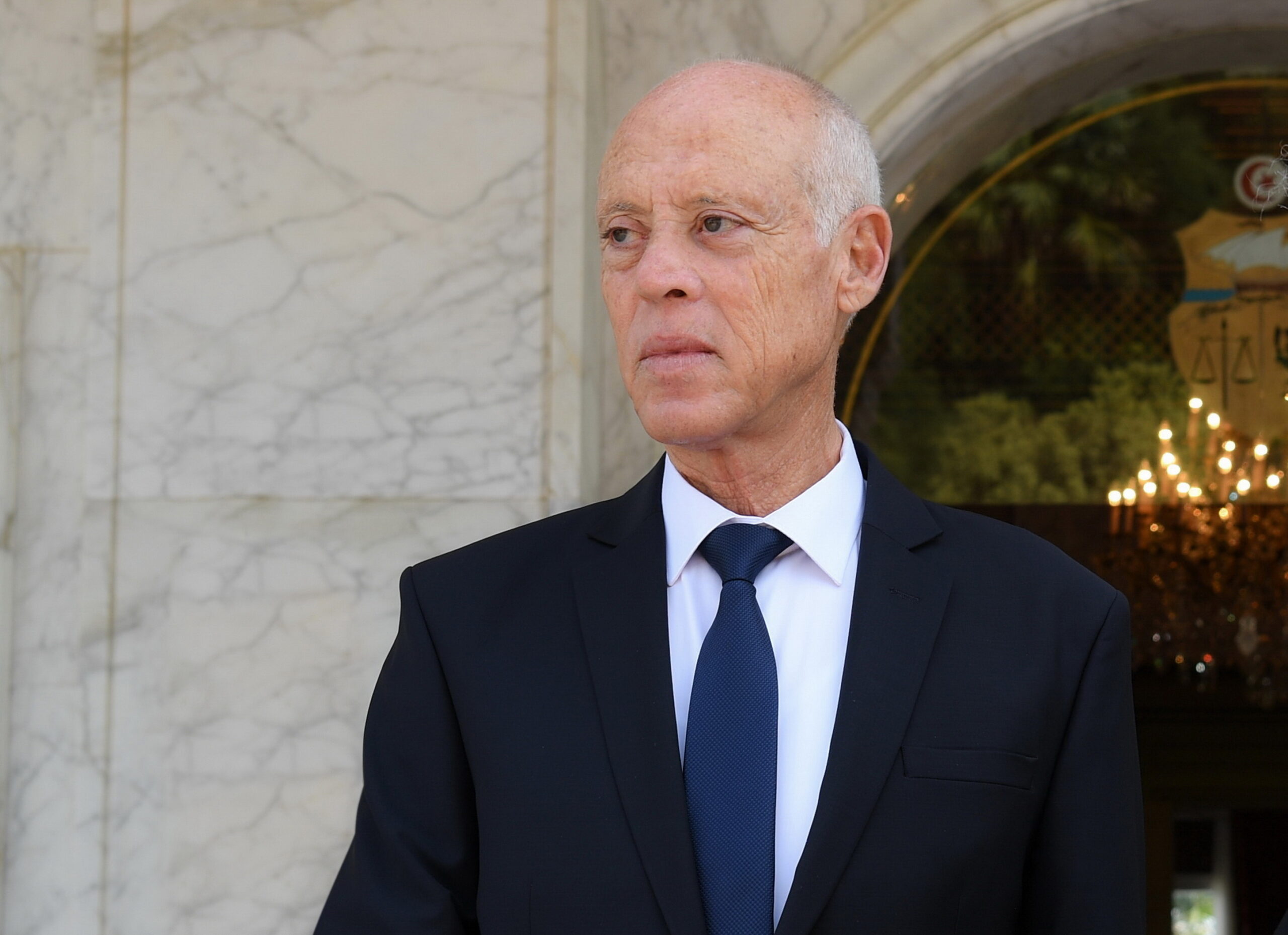
Election Results
- On Sunday, October 6, Tunisian President Kais Saied won another term, receiving 90.7% of the vote.
- Election turnout came to 28.8%, the country’s lowest for a presidential vote since the Jasmine Revolution in 2011.
- Saied’s opponents were Zouhair Maghzaoui, a former ally, and Ayachi Zammel, a former businessman and lawmaker who was arrested one month before the elections. They garnered 1.97% and 7.35% of the vote, respectively.
- Following the announcement of the results, Saied vowed that his win would mark a “continuation of the revolution,” promising to continue purging “the corrupt and the traitors” from the country.
- For observers and opposition, this is an ominous sign that Saied’s closing of electoral and political space will continue. Protests against his increasingly authoritarian behavior have sparked crackdowns and led to the jailing of opponents.
The Lead-Up to the Election
- Opponents have slammed the election as unfair after the Independent High Authority for Elections of Tunisia (ISIE) barred 14 candidates from running.
- Saied restructured the ISIE in 2022, packing it with loyalists who would ensure favorable rulings.
- Three candidates won appeals from Tunisia’s administrative court seeking to be reinstated on ballots. However, after the remaking of the ISIE, the court does not have the authority to reinstate candidates.
- Zammel, one of those candidates approved, was arrested on September 2 on charges of falsifying signatures on candidacy papers. He was still allowed to stand in the election.
- Across three separate rulings, his sentence now exceeds 12 years.
- Zammel was viewed as a viable alternative to Saied, and many believe that the arrest was politically motivated to deter those who would issue a protest vote against the current administration.
Saied’s Shift Towards Authoritarianism
- Saied was elected to his first term as president in 2019 in a free and fair election. In 2021, he consolidated power in a “self-coup,” a move that critics panned as an unconstitutional power grab.
- Saied dismissed the prime minister and froze the parliament, extending the freeze on operations multiple times while declaring that he would rule by decree outside the constitution’s bounds.
- Beyond jailing political opponents, the government has issued threats to civil society alongside increased xenophobic rhetoric, worrying domestic and international actors that Saied has caused irreparable harm to the nascent democracy in Tunisia.
(Banner image: Houcemmzoughi)

